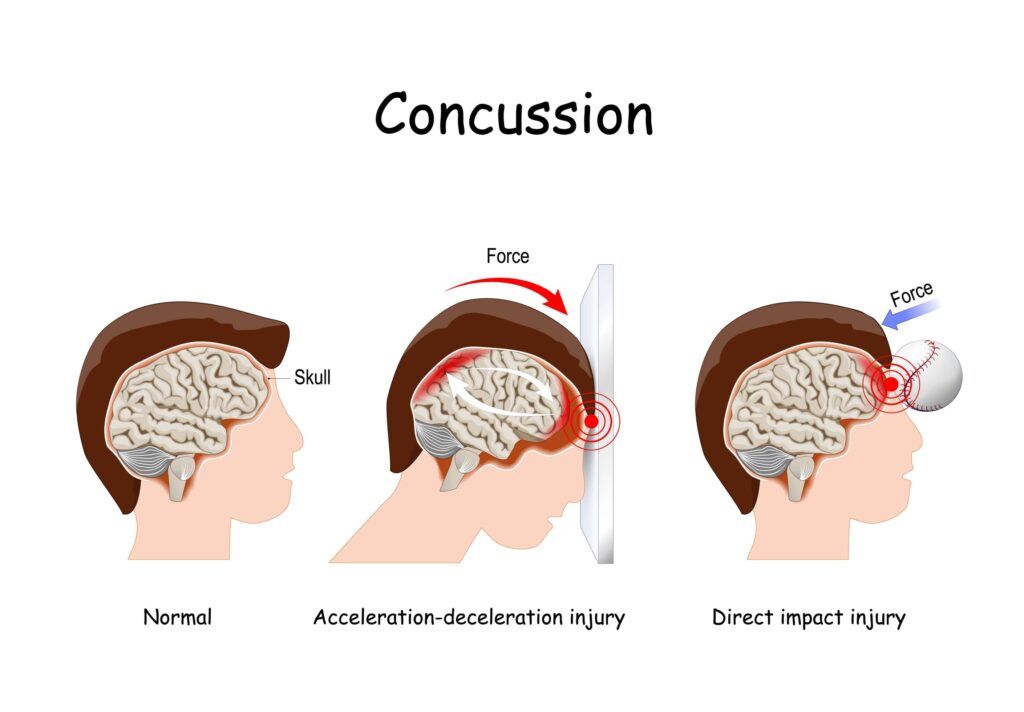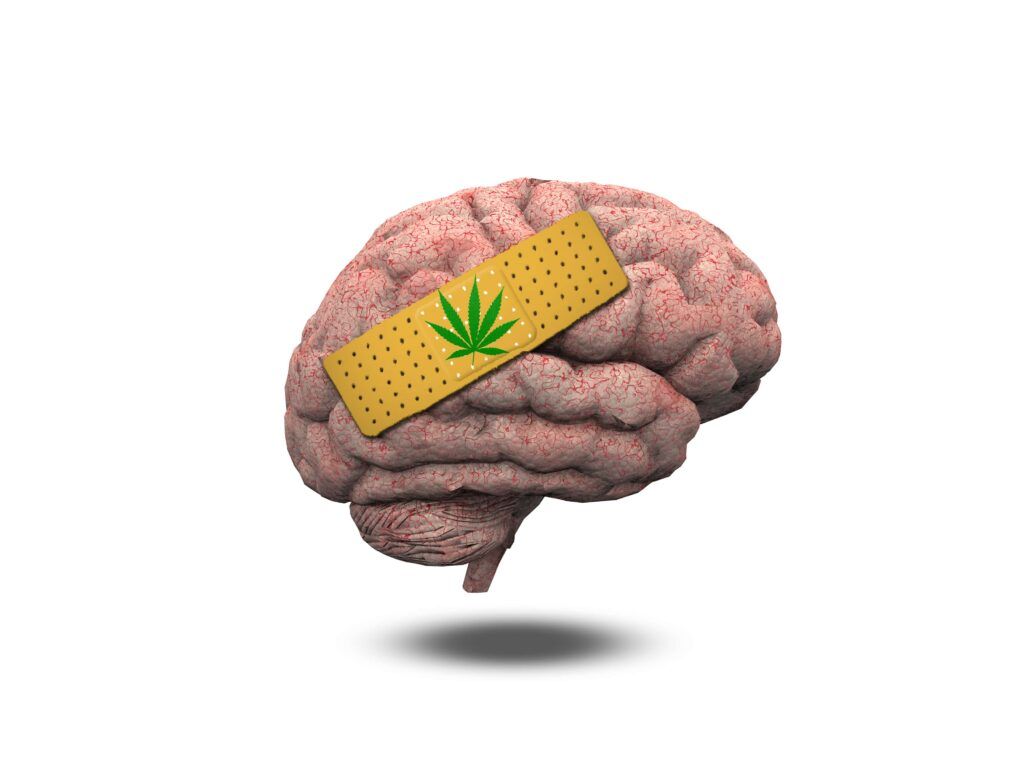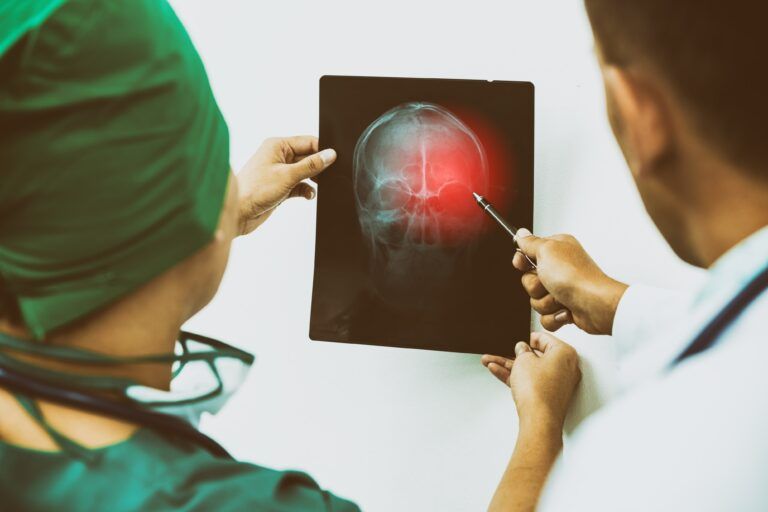Traumatic Brain Injury (TBI) represents a significant medical challenge, affecting millions of individuals worldwide with a wide spectrum of symptoms and long-term effects. As the medical community strives to improve outcomes for TBI patients, traditional treatments such as physical therapy, medication, and psychological support have been the cornerstone of recovery efforts. However, the exploration of alternative therapies has unveiled the potential of medical cannabis as a complementary treatment option. This blog delves into the intricacies of TBI recovery, highlighting conventional approaches and examining the burgeoning role of medical cannabis. Through an evidence-based lens, we will explore how the therapeutic properties of cannabis may offer neuroprotective benefits, mitigate inflammation, and alleviate pain, thus supporting patients on their journey to recovery. Join us as we navigate the complexities of TBI rehabilitation, underscored by the promise and considerations of integrating medical cannabis into treatment plans.
In This Blog:
- Understanding Traumatic Brain Injury (TBI)
- Traditional Approaches to TBI Recovery
- The Role of Medical Cannabis in TBI Recovery
- FAQs
Understanding Traumatic Brain Injury (TBI)
Traumatic Brain Injury (TBI) occurs when a sudden trauma causes damage to the brain. This can result from a direct blow to the head, a penetrating head injury, or a forceful motion that causes the brain to collide with the inner skull. The consequences of TBI can range from mild, presenting symptoms like temporary confusion and headaches (commonly referred to as concussions), to severe, potentially resulting in prolonged periods of unconsciousness, amnesia, or even permanent brain damage.
Causes and Types of TBI
TBI can be caused by a variety of incidents, including vehicle-related collisions, falls, sports injuries, and acts of violence. Based on the severity and mechanism of injury, TBIs are generally classified into several types:

- Concussions: The most common type of TBI, often considered mild, though they can have serious long-term effects.
- Contusions: Bruises on the brain caused by direct impacts.
- Diffuse Axonal Injuries: Injuries characterized by tearing of the brain’s long connecting nerve fibers, occurring when the brain is injured as it shifts and rotates inside the skull.
- Penetrating Injuries: Occur when an object, such as a bullet or shrapnel, pierces the skull and enters the brain tissue.
Short-term and Long-term Effects
The impact of a TBI can extend far beyond the initial injury, affecting individuals’ cognitive, physical, and emotional wellbeing. Short-term effects might include headaches, dizziness, fatigue, attention deficits, and memory problems. Over time, individuals with TBI may experience more profound issues such as chronic pain, sleep disturbances, mood swings, depression, and even cognitive decline.
Importance of Early Diagnosis and Personalized Treatment
Early diagnosis and intervention are crucial in minimizing the long-term impact of TBI. A tailored treatment plan that addresses the specific needs of the individual can significantly improve outcomes. This involves a comprehensive approach that may include medical treatment for physical symptoms, rehabilitation therapies to restore function, and psychological support to address emotional challenges.
Understanding TBI is the first step in recognizing the complexity of recovery and the necessity for personalized, multifaceted treatment approaches. As we explore further, the role of medical cannabis in this context emerges as a promising adjunct therapy, offering potential benefits that could support the traditional pillars of TBI recovery.
Traditional Approaches to TBI Recovery
Recovering from a Traumatic Brain Injury (TBI) is a multifaceted journey that requires a comprehensive, individualized treatment approach. Traditional methods for managing and rehabilitating TBI encompass a variety of therapies aimed at mitigating symptoms, improving functionality, and enhancing the quality of life for affected individuals. Here’s an overview of the conventional treatments employed in TBI recovery:
Physical Therapy
Physical therapy (PT) is a cornerstone in the rehabilitation process for TBI patients. It focuses on improving mobility, strength, and coordination. PT helps in regaining lost motor functions and in teaching compensatory strategies for managing deficits. For individuals who have experienced severe TBIs, physical therapists also work on basic mobility skills such as sitting, standing, and walking.
Occupational Therapy
Occupational therapy (OT) aims at enhancing daily living skills. For TBI patients, OT is vital in relearning routine activities like dressing, eating, and using technology. Occupational therapists assess the patient’s home and work environments to recommend adaptive equipment and strategies that promote independence.
Speech and Language Therapy
Many individuals with TBI face difficulties with communication, speech, and swallowing. Speech and language therapists work on improving these skills through exercises that target speech clarity, cognitive communication abilities, and safe swallowing techniques. This therapy is essential for enhancing the patient’s ability to express themselves and for ensuring nutritional intake without the risk of aspiration.
Psychological Support
TBI often affects an individual’s emotional and psychological wellbeing. Counseling and psychological therapies are integral to addressing issues such as depression, anxiety, and emotional regulation. These therapies provide strategies for coping with the changes and challenges that come with TBI, fostering resilience and improving mental health.
Medication Management
Managing symptoms with medication is another critical aspect of TBI recovery. Depending on the nature and severity of the injury, patients may be prescribed medications to alleviate pain, reduce inflammation, prevent seizures, or manage mood disorders. Medication regimes are carefully monitored and adjusted as recovery progresses to ensure optimal outcomes.
The Multidisciplinary Approach
The multidisciplinary approach is central to effective TBI treatment, involving a team of healthcare professionals who collaborate to create a comprehensive, personalized recovery plan. This team typically includes neurologists, physical, occupational, and speech therapists, psychologists, and nurses. They work together to address the wide range of challenges a TBI patient faces, from physical impairments to cognitive and emotional disturbances.
This holistic approach underscores the importance of integrating various therapeutic modalities to address the complex and diverse needs of TBI patients. As we explore the potential role of medical cannabis in TBI recovery, it’s crucial to view it as an adjunct to these established treatments, offering additional avenues for alleviating symptoms and improving quality of life.
The Role of Medical Cannabis in TBI Recovery
The exploration of medical cannabis as a therapeutic option for Traumatic Brain Injury (TBI) recovery represents a growing area of interest within the medical community. Rooted in both historical use and contemporary research, the potential benefits of medical cannabis are being closely examined for their neuroprotective, anti-inflammatory, and pain management properties. This section delves into how medical cannabis is being considered as an adjunct therapy in the complex recovery process from TBI.
Introduction to Medical Cannabis
Medical cannabis refers to the use of cannabis and its constituent chemicals, cannabinoids, as medical therapy to treat disease or alleviate symptoms. The two most well-studied cannabinoids are delta-9-tetrahydrocannabinol (THC) and cannabidiol (CBD). THC is known for its psychoactive properties, while CBD does not produce a “high” and is often associated with the medicinal benefits of cannabis, including anti-inflammatory and neuroprotective effects.
Cannabis and the Brain: Mechanisms of Action

The human brain contains a vast network of receptors that are part of the endocannabinoid system (ECS), which plays a crucial role in regulating various physiological processes, including pain sensation, immune response, and neuroinflammation. Cannabinoids from cannabis interact with this system, potentially offering therapeutic benefits. THC primarily binds to CB1 receptors in the brain, affecting cognition, memory, and pain perception. CBD, on the other hand, has a more complex mechanism of action, influencing several pathways, including those involved in inflammation and cell death, without the intoxicating effects of THC.
Research Findings on Medical Cannabis and TBI
Recent studies have begun to shed light on how medical cannabis could aid TBI recovery. Some key areas of research include:
- Neuroprotection: Preclinical studies suggest that cannabinoids may protect brain cells from damage by reducing oxidative stress and excitotoxicity, processes that are often exacerbated following a TBI.
- Inflammation Reduction: Cannabinoids have been shown to modulate the immune system and decrease the production of inflammatory cytokines, which can mitigate the secondary damage caused by inflammation following a TBI.
- Pain Management: Cannabis has a long history of use in pain relief. For TBI patients, who often experience chronic pain, medical cannabis might offer an alternative to traditional painkillers, with a potentially lower risk of dependency and side effects.
Potential Benefits of Medical Cannabis in TBI Recovery
Integrating medical cannabis into TBI recovery plans could potentially offer several benefits, including improved pain management, reduced inflammation, and enhanced neuroprotection. These effects might not only alleviate some of the direct symptoms associated with TBI but also contribute to a more conducive environment for brain healing and recovery.
The role of medical cannabis in TBI recovery exemplifies the evolving landscape of treatment options, reflecting both the complexity of brain injuries and the innovative approaches being explored to support recovery. As research continues to advance, medical cannabis may become a more prominent tool in the multidisciplinary approach to TBI rehabilitation, offering hope and potentially improved outcomes for those navigating the challenging journey of recovery.
FAQs
What is Traumatic Brain Injury (TBI)?
Traumatic Brain Injury (TBI) occurs when a sudden trauma causes damage to the brain. It can result from an impact to the head, a penetrating head injury, or an injury that causes the brain to move within the skull. TBIs can range from mild (such as a concussion) to severe, potentially leading to prolonged unconsciousness or amnesia.
Can medical cannabis cure TBI?
Medical cannabis does not cure TBI but may offer symptomatic relief and potentially support the recovery process. Research suggests it might help by reducing inflammation, providing neuroprotective effects, and managing pain. However, medical cannabis should be considered an adjunct therapy, not a standalone treatment, and used under the guidance of a healthcare professional.
How does medical cannabis work for TBI recovery?
Medical cannabis interacts with the body’s endocannabinoid system, which plays a role in regulating inflammation, pain, and cell damage. Components like CBD and THC can help reduce inflammation, protect neuronal health, and alleviate pain, potentially contributing to the recovery process after a TBI.
Can anyone with TBI use medical cannabis?
Not everyone with TBI may be a suitable candidate for medical cannabis treatment. Factors such as individual health conditions, potential interactions with other medications, and personal response to cannabis components will influence suitability. Always consult with a healthcare professional before starting any new treatment.
This FAQs section aims to address common questions and concerns regarding TBI and the role of medical cannabis in its treatment, providing readers with a better understanding of this complex condition and the potential benefits and considerations of cannabis as an adjunct therapy.
Conclusion
In conclusion, the journey of recovery from Traumatic Brain Injury (TBI) is intricate and deeply personal, encompassing a spectrum of traditional therapies and emerging treatments, including medical cannabis. While traditional approaches like physical, occupational, and speech therapy, alongside psychological support and medication management, form the bedrock of TBI recovery, the potential of medical cannabis offers a beacon of hope for symptom management and enhanced recovery. With its promise in neuroprotection, inflammation reduction, and pain management, medical cannabis emerges as a compelling adjunct therapy. However, it’s crucial for patients and healthcare professionals to navigate this landscape with caution, informed by the latest research and mindful of legal and individual health considerations. As we continue to explore and understand the full potential of medical cannabis within the multidisciplinary approach to TBI recovery, it remains a testament to the evolving nature of neurological care and the ongoing quest for improved quality of life for TBI survivors.

Dr. Kashouty, a diplomate of the American Board of Psychiatry and Neurology (ABPN), practices general neurology with fellowship trained specialization in clinical neurophysiology. Dr. Kashouty finds the form and function of the nerves and muscles the most interesting part of neurology, which is what led him to specialize in neurophysiology with more emphasis on neuromuscular conditions. He treats all neurological diseases, but his main focus is to treat and manage headaches, movement disorders and neuromuscular diseases.




